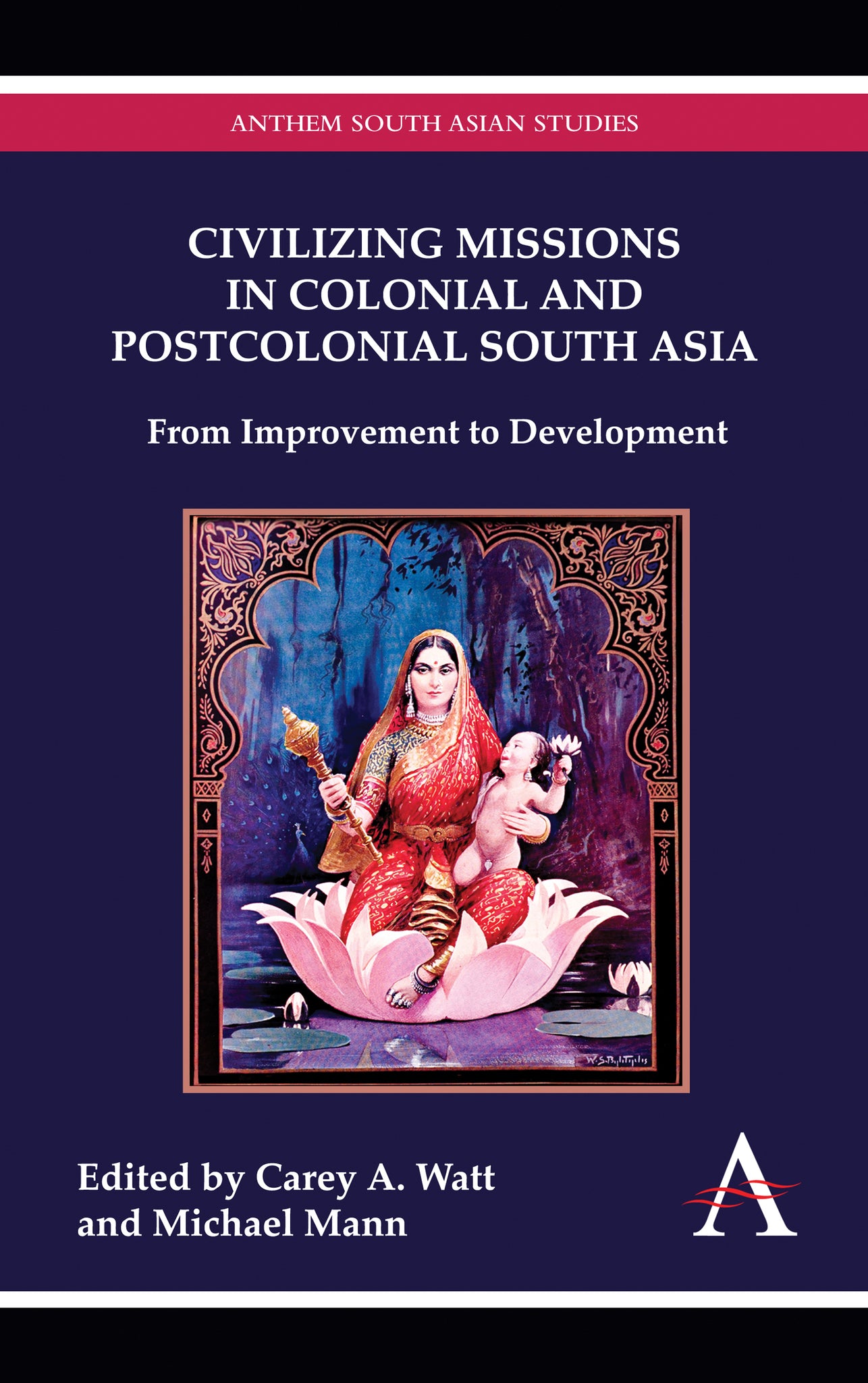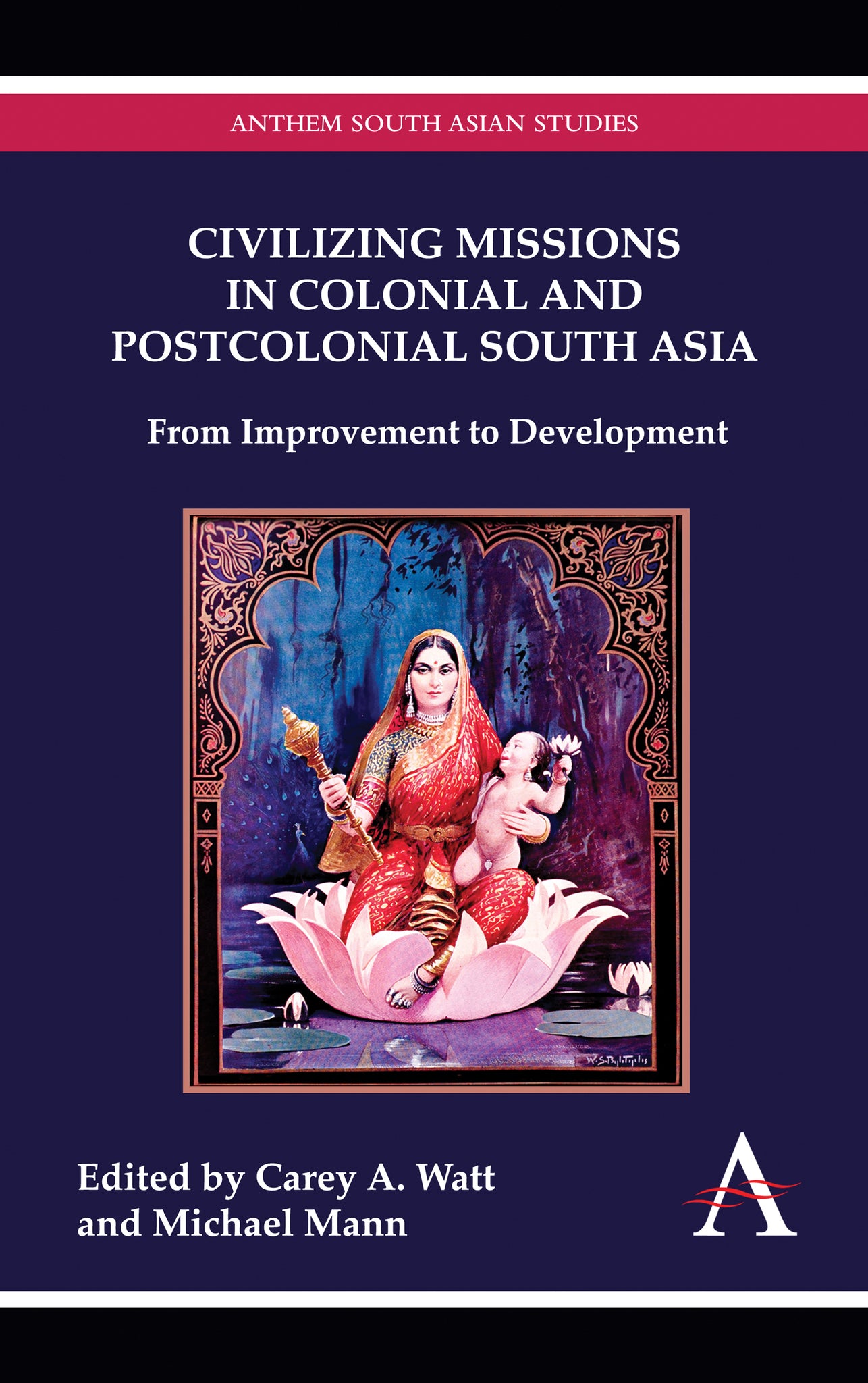We're sorry. An error has occurred
Please cancel or retry.
Civilizing Missions in Colonial and Postcolonial South Asia

Some error occured while loading the Quick View. Please close the Quick View and try reloading the page.
Couldn't load pickup availability
- Format:
-
15 March 2011

‘Civilizing Missions in Colonial and Postcolonial South Asia’ offers a series of analyses that highlights the complexities of British and Indian civilizing missions in original ways and through various historiographical approaches. The book applies the concept of the civilizing mission to a number of issues in the colonial and postcolonial eras in South Asia: economic development, state-building, pacification, nationalism, cultural improvement, gender and generational relations, caste and untouchability, religion and missionaries, class relations, urbanization, NGOs, and civil society.

HISTORY / Asia / General, Asian history

‘The present set of essays is a valuable contribution to the ongoing discourse made relevant in the wake of neocolonialism and invasion of independent nations carried out in the name of progress of “less civilized” societies. […] [S]uch [a] broad spectrum of continuities of the “civilizing mission,” within and beyond India in the colonial and postcolonial periods, adds to the appeal of this volume. […]This volume should therefore be a necessary addition to the library of every student of history.’ —Vinod John, ‘Religious Studies Review’
Introduction: The Relevance and Complexity of Civilizing Missions c. 1800-2010; Part One. The Raj’s Reforms and Improvements: Aspects of the British Civilizing Mission; 1. Conjecturing Rudeness: James Mill’s Utilitarian Philosophy of History and the British Civilizing Mission; 2. Art, Artefacts and Architecture: Lord Curzon, the Delhi Arts Exhibition of 1902-03 and the Improvement of India’s Aesthetics; Part Two. Colonialism, Indians and Nongovernmental Associations: The Ambiguity and Complexity of ‘Improvement’; 3. Incorporation and Differentiation: Popular Education and the Imperial Civilizing Mission in Early Nineteenth Century India; 4. Reclaiming Savages in ‘Darkest England’ and ‘Darkest India’: The Salvation Army as Transnational Agent of the Civilizing Mission; 5. Mediating Modernity: Colonial State, Indian Nationalism and the Renegotiation of the ‘Civilizing Mission’ in the Indian Child Marriage Debate of 1927-1932; Part Three. Indian ‘Self-Civilizing’ Efforts c. 1900-1930; 6. ‘Civilizing Sisters’: Writings on How to Save Women, Men, Society and the Nation in Late Colonial India; 7. From ‘Social Reform’ to ‘Social Service’: Indian Civic Activism and the Civilizing Mission in Colonial Bombay c. 1900-20; Part Four. Transcending 1947: Colonial and Postcolonial Continuities; 8. Female Infanticide and the Civilizing Mission in Postcolonial India: A Case Study from Tamil Nadu c. 1980-2006; 9. Philanthropy and Civilizing Missions in India c. 1820-1960: States, NGOs and Development; Afterword: Improvement, Progress and Development; List of Contributors; Index



